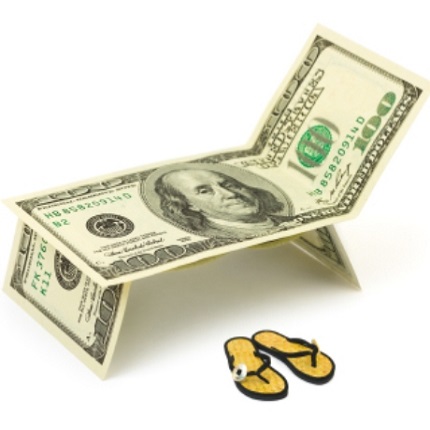2015 Tax Moves: Getting Your Ducks In A Row Before 2016
 To keep your tax bill in line next year, you need to get your ducks in a row before the end of 2015.
To keep your tax bill in line next year, you need to get your ducks in a row before the end of 2015.
You may think you have months to go before you have to get serious about your 2015 taxes. Congress often doesn’t nail down the final tax rules until December. Your W-2 and 1099s won’t show up in the mail until January.
But once the calendar flips to 2016, you have few ways to trim your tax bill. So to avoid unnecessary pain next April, use the rest of 2015 wisely. That could mean checking up on your investment portfolio, stepping up your charitable giving, adding up what you made this year, and more. You’ll be glad you did next year.
Tally Up Your Returns
Get a handle on all 2015 returns:
- Profit from your losses. The fall stock rally may have wiped out any investment losses you were sitting on. Still, check for holdings that haven’t yet recovered from the summer selloff (energy stocks, anyone?). You can use losses to offset capital gains, write off up to $3,000 of what’s left against ordinary income, and save the remainder for future years.
- See if your winnings are free. When your income drops—say you’ve retired—you have a chance at tax-free profits. The long-term capital gains tax rate is zero if you have less than $74,900 in taxable income for married couples filing jointly, or $37,450 for singles.
- Know when selling will sting. With a high income, you need to be careful about realizing any more gains than necessary in one year. Once your income tops $250,000 for couples filing jointly, $200,000 for singles, you’ll pay an extra 3.8% Medicare tax on net investment income, including taxable interest, dividends, and capital gains.
Fiddle With Your Income
Don’t let a banner year hurt you. If a juicy bonus or home sale pushed you up the income ladder in 2015, you could face a larger-than-expected tax bill next spring due to the alternative minimum tax, a parallel tax system that curtails certain write-offs, such as mortgage interest and taxes. And with an adjusted gross income of $309,900 for married couples filing jointly ($258,250 for singles), your deductions could be phased out.
To see if you’re at risk, pull out your pay stubs and brokerage statements and use last year’s tax software to get a preview of your 2015 taxes. If AMT or phaseouts will be a one-time thing, delay some deductible payments, such as property taxes, until January, says Mark Luscombe, principal federal tax analyst for Wolters Kluwer. That way you’ll get the full benefit of those write-offs when your income falls next year. Or look for ways to reduce your AGI, such as seeing if your boss will delay a bonus.
Here are other areas to examine:
- Shrink your paycheck. You have until next April to top off an IRA or health savings account, but Dec. 31 is the deadline to shelter the max in your 401(k): $18,000, or $24,000 if you’re 50 or older. But you’ll have to up your contribution rate quickly to squeeze more out of your last paycheck or two.
- Collect your IRA income now. Once you turn 70½, you must start taking retirement plan withdrawals—or face a 50% penalty on the amount you should have taken out. There are exceptions: You can put off required minimum distributions from your current 401(k) if you’re still working, and you never have to tap a Roth IRA.
- You have until April 1 of the year after you turn 70½ to take your first RMD. Then the deadline is Dec. 31. But if you just turned 70½, waiting until next April would mean two distributions in a year, which could push you into a higher bracket. Instead, make your first withdrawal in 2015.
Know Your True Deadlines
Here are deadlines to look at:
- Lock in health coverage early. If you need to buy your own health insurance, the penalty for going without rises next year to up to 2.5% of income. You can enroll in a plan as late as Jan. 31, 2016, to avoid that charge on your 2015 tax bill. But to have coverage on Jan. 1, you need to enroll by Dec. 15.
- Relax about your FSA (up to a point). Health care flexible spending accounts traditionally had a Dec. 31 “use it or lose it” deadline. The rules have changed, notes Lisa Greene-Lewis, a CPA at TurboTax. Now 60% of companies let you roll over up to $500 of unused FSA cash into next year’s plan, a survey by WageWorks found; nearly a quarter offer a 2½ month grace period. No extension or too big a balance? Schedule overdue doctor and dentist appointments for before you ring in the new year.
Source: Time Money

